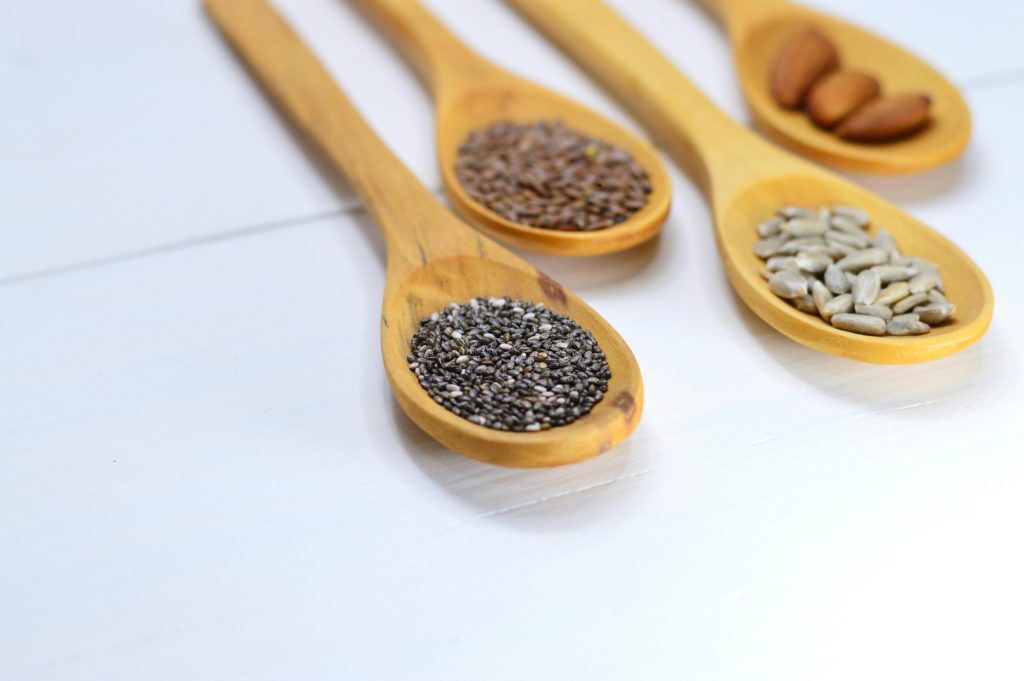Small Steps, Big Results
We live in a world obsessed with instant gratification. The weight loss industry often capitalizes on this desire, bombarding us with promises of rapid transformations and quick fixes. While the allure of shedding pounds quickly is undeniable, the truth is that sustainable weight loss – the kind that lasts and contributes to overall well-being – is rarely achieved through drastic measures. Instead, it’s the consistent adoption of small, healthy habits that paves the path to lasting change.
As an expert in transformation, I firmly believe that progress, no matter how small, is indeed progress. Each mindful choice, each added step, and each healthier meal contributes to a cumulative effect that far outweighs the fleeting results of restrictive diets or unsustainable exercise regimens. This isn’t about deprivation or punishment; it’s about cultivating a lifestyle that nourishes your body and mind, naturally leading to a healthier weight.
So, let’s delve into the power of these seemingly insignificant yet profoundly impactful healthy habits that can set you on a journey towards sustainable weight loss and a more vibrant you.

1. The Cornerstone: Mindful Eating
Before even considering what you eat, let’s address how you eat. Mindful eating is the practice of paying full attention to your food and the eating process, free from distractions. In our fast-paced world, it’s easy to eat on autopilot – scrolling through our phones, working at our desks, or watching television. This often leads to overeating and a disconnect from our body’s hunger and fullness cues.
How to cultivate mindful eating:
- Eliminate distractions: Turn off your phone and television, and find a quiet place to eat.
- Savor each bite: Pay attention to the taste, texture, smell, and even the appearance of your food. Chew thoroughly and slowly.
- Listen to your body: Be aware of your hunger and fullness signals. Stop eating when you feel satisfied, not stuffed.
- Practice gratitude: Take a moment before eating to appreciate the food in front of you.
- Identify emotional eating triggers: Become aware of when you eat not out of hunger but in response to emotions like stress, boredom, or sadness. Develop healthier coping mechanisms for these feelings.
The Weight Loss Connection: Mindful eating naturally helps regulate calorie intake. By slowing down and paying attention, you’re more likely to recognize when you’re truly full, preventing overconsumption. It also fosters a healthier relationship with food, moving away from mindless consumption and towards conscious nourishment.

2. Hydration: The Unsung Hero
Water is essential for countless bodily functions, and its role in weight management is often underestimated. Dehydration can sometimes be mistaken for hunger, leading to unnecessary snacking. Moreover, adequate hydration supports metabolism and can help you feel fuller for longer.
How to make hydration a healthy habit:
- Carry a water bottle: Keep it with you throughout the day as a visual reminder to sip regularly.
- Start your day with water: Drink a glass of water first thing in the morning before coffee or tea.
- Drink water before meals: This can help you feel more satiated and reduce your overall food intake.
- Infuse your water: If plain water feels boring, add slices of lemon, cucumber, or berries for a refreshing twist.
- Pay attention to thirst cues: Don’t wait until you’re parched to drink. Sip water throughout the day.
The Weight Loss Connection: Staying adequately hydrated can help curb unnecessary snacking, boost metabolism, and support overall bodily functions crucial for effective weight management.

3. Prioritizing Protein: Your Ally in Satiety
Protein is a macronutrient that plays a vital role in building and repairing tissues, but it’s also a powerful tool for weight loss. Protein is more satiating than carbohydrates or fats, meaning it helps you feel fuller for longer, reducing overall calorie intake. It also has a higher thermic effect of food (TEF), meaning your body burns more calories digesting protein compared to other macronutrients.
How to incorporate more protein into your diet:
- Include protein at every meal: Think eggs, Greek yogurt, lean meats, poultry, fish, beans, lentils, tofu, or nuts and seeds.
- Choose lean protein sources: Opt for skinless chicken, fish, and leaner cuts of red meat to minimize saturated fat intake.
- Consider plant-based protein options: Beans, lentils, chickpeas, and tofu are excellent sources of protein and fiber.
- Use protein-rich snacks: Greek yogurt, hard-boiled eggs, or a handful of nuts can help keep you feeling full between meals.
The Weight Loss Connection: By promoting satiety and increasing calorie expenditure during digestion, adequate protein intake can significantly contribute to weight loss and maintenance.

4. The Power of Fiber: Your Digestive Friend
Fiber, found in fruits, vegetables, whole grains, and legumes, is another essential nutrient for both overall health and weight management. Like protein, fiber promotes satiety, helping you feel fuller for longer and reducing calorie intake. It also aids in digestion, regulates blood sugar levels, and can even help lower cholesterol.
How to increase your fiber intake:
- Choose whole grains over refined grains: Opt for brown rice, quinoa, whole-wheat bread, and oats instead of white rice, white bread, and processed cereals.
- Load up on fruits and vegetables: Aim for a variety of colorful fruits and vegetables at every meal and as snacks.
- Incorporate legumes into your diet: Beans, lentils, and chickpeas are excellent sources of both protein and fiber.
- Don’t peel all your fruits and vegetables: The skin often contains a significant amount of fiber.
- Sprinkle seeds and nuts on your meals: Flax seeds, chia seeds, and almonds are great sources of fiber.
The Weight Loss Connection: Fiber’s ability to promote fullness and regulate blood sugar levels makes it a crucial component of a weight-loss-friendly diet.

5. The Movement Habit: Finding Joy in Activity
Exercise is often viewed solely as a means to burn calories for weight loss. While it certainly plays a role, the benefits of regular physical activity extend far beyond weight management. It improves cardiovascular health, strengthens bones and muscles, boosts mood, and reduces the risk of chronic diseases. The key is to find activities you enjoy, making movement a sustainable part of your lifestyle, rather than a chore.
How to cultivate a movement habit:
- Start small and build gradually: If you’re new to exercise, begin with short walks or gentle activities and gradually increase the duration and intensity.
- Find activities you enjoy: Whether it’s dancing, swimming, cycling, hiking, or playing a sport, choose something that makes you feel good.
- Incorporate movement into your daily routine: Take the stairs instead of the elevator, walk or bike for short errands, or stand up and move around every 30 minutes if you have a sedentary job.
- Set realistic goals: Aim for at least 150 minutes of moderate-intensity aerobic activity or 75 minutes of vigorous-intensity aerobic activity per week, as recommended by health organizations.
- Make it social: Exercise with a friend or join a group class for added motivation and accountability.
The Weight Loss Connection: Regular physical activity helps burn calories, build muscle mass (which increases metabolism), and improves overall health, supporting sustainable weight loss.

6. Prioritizing Sleep: The Body’s Repair and Regulation Time
Sleep is often overlooked in the pursuit of weight loss, yet it plays a crucial role in regulating hormones that control appetite, metabolism, and fat storage. Insufficient sleep can disrupt these hormones, leading to increased hunger, cravings for unhealthy foods, and decreased metabolism, making weight loss more challenging.
How to prioritize sleep:
- Establish a consistent sleep schedule: Go to bed and wake up around the same time each day, even on weekends, to regulate your body’s natural sleep-wake cycle.
- Create a relaxing bedtime routine: Wind down before bed with activities like reading, taking a warm bath, or listening to calming music.
- Optimize your sleep environment: Ensure your bedroom is dark, quiet, and cool.
- Avoid caffeine and alcohol before bed: These substances can interfere with sleep.
- Limit screen time before bed: The blue light emitted from electronic devices can suppress melatonin production, making it harder to fall asleep.
- Aim for 7-9 hours of quality sleep per night.
The Weight Loss Connection: Adequate sleep helps regulate hunger hormones, supports a healthy metabolism, and reduces cravings for unhealthy foods, all of which are essential for successful weight loss.

7. Stress Management: Finding Your Calm
Chronic stress can wreak havoc on your body, leading to hormonal imbalances that promote fat storage, particularly around the abdomen. It can also trigger emotional eating and make it harder to stick to healthy habits. Finding healthy ways to manage stress is crucial for both your mental and physical well-being, including weight management. Healthy habits play a crucial role in weight management.
How to cultivate stress-management habits:
- Identify your stressors: Understand what triggers your stress and try to minimize or manage those triggers.
- Practice relaxation techniques: Incorporate activities like deep breathing exercises, meditation, yoga, or spending time in nature into your routine.
- Engage in enjoyable hobbies: Make time for activities that bring you joy and help you relax.
- Seek social support: Connect with friends and family, and don’t hesitate to reach out for professional help if needed.
- Prioritize self-care: Make time for activities that nourish your mind, body, and soul.
The Weight Loss Connection: By reducing stress levels, you can better regulate hormones that influence appetite and fat storage, making weight loss more achievable.

The Power of Consistency and Patience
It’s important to remember that building healthy habits takes time and effort. There will be days when you slip up, and that’s perfectly normal. The key is to be kind to yourself, learn from those moments, and get back on track. Consistency is far more important than perfection.
Celebrate the small victories along the way. Acknowledge each healthy meal choice, each extra walk, and each mindful moment. These small steps, when consistently repeated, will compound over time, leading to significant and sustainable progress.
Sustainable weight loss is not a race; it’s a journey. It’s about cultivating a lifestyle that supports your health and well-being in the long run. By focusing on building these small, healthy habits, you’re not just aiming for a number on the scale; you’re investing in a healthier, happier, and more vibrant you. Embrace the process, be patient with yourself, and trust in the power of small, consistent steps. Progress, no matter how small, is indeed progress, and it’s leading you towards a healthier and more fulfilling life.
More about healthy habits and their importance in long-term weight management here: https://www.bariradka.com/2024/08/17/long-term-success/

